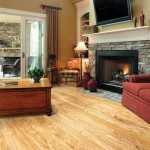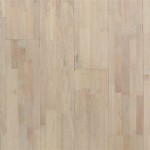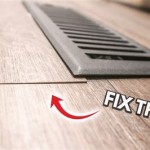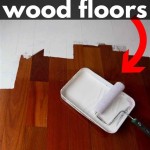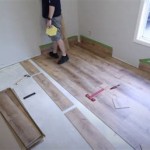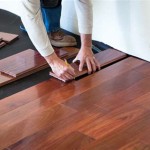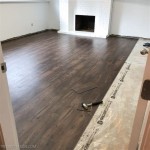A Comprehensive Guide To Manufactured Hardwood Flooring
Manufactured hardwood flooring, often known as engineered wood flooring, is a versatile and popular choice for homeowners looking to add warmth and style to their homes. It offers an array of benefits, including durability, affordability, and ease of installation. This guide will provide you with a comprehensive overview of manufactured hardwood flooring, its advantages, and the key factors to consider when selecting and installing it.
### Benefits of Manufactured Hardwood FlooringManufactured hardwood flooring is engineered to withstand the rigors of everyday life, making it an ideal choice for families with children and pets. Its durability is attributed to its multi-layer construction, which includes a core of high-density fiberboard (HDF) or plywood, a layer of real wood veneer, and a protective wear layer. The wear layer resists scratches, dents, and fading, ensuring that your flooring will maintain its beauty for years to come.
In addition to its durability, manufactured hardwood flooring is known for its affordability. Compared to solid hardwood flooring, engineered hardwood is significantly less expensive, making it a more accessible option for budget-conscious homeowners. It is also easier to install, which can save on labor costs. The planks are typically designed with a tongue-and-groove system that allows for a quick and seamless installation.
### Factors to Consider When Choosing Manufactured Hardwood FlooringWhen selecting manufactured hardwood flooring, there are several key factors to consider:
- Species: The type of wood used for the veneer will determine the appearance and durability of your flooring. Popular species include oak, maple, walnut, and cherry.
- Wear Layer Thickness: The wear layer is the protective coating that shields the flooring from scratches and dents. Thicker wear layers provide greater durability, but they can also increase the cost of the flooring.
- Finish: Manufactured hardwood flooring comes in a variety of finishes, including matte, satin, and glossy. The finish will affect the appearance and maintenance requirements of your flooring.
- Installation Method: Manufactured hardwood flooring can be installed using floating, glue-down, or nail-down methods. The best method for your home will depend on the subfloor and your personal preferences.
Proper installation is essential to ensure the longevity and performance of your manufactured hardwood flooring. It is recommended to hire a qualified flooring installer to ensure that the flooring is installed correctly. Here are a few additional tips for maintaining your flooring:
- Sweep or vacuum your flooring regularly to remove dirt and debris.
- Avoid using abrasive cleaners or harsh chemicals, as they can damage the finish.
- Use a damp mop to clean your flooring, and never use excessive water.
- Protect your flooring from direct sunlight and high heat sources.
Manufactured hardwood flooring offers homeowners a cost-effective and durable alternative to solid hardwood flooring. It is easy to install, comes in a variety of styles, and can be customized to suit your home décor. By understanding the key factors to consider when selecting and installing manufactured hardwood flooring, you can create a beautiful and long-lasting floor that will add value and style to your home.

The Ultimate Guide To Engineered Hardwood Flooring Precision

The Complete Guide To Engineered Wood Flooring Improve Look And Sustaility Of Your Home Decor Imperial

Guide How To Install Engineered Hardwood Floors

Hardwood Flooring Trends Our Comprehensive Selection Guide Sebring Design Build

Laminate V Hardwood Flooring The Ultimate Guide

Our Ultimate Guide To Common Hardwood Flooring Questions Mayriver

The Ultimate Guide To 15mm Engineered Wood Flooring And Beyond Blog

Laminate Vs Wood Flooring The Ultimate Guide

Solid Wood Vs Engineered Flooring Complete Guide 2024
A Comprehensive Guide To Flooring Exploring Engineered And Laminate Options In Alpharetta Ga Zaman Newsbreak Original
See Also

